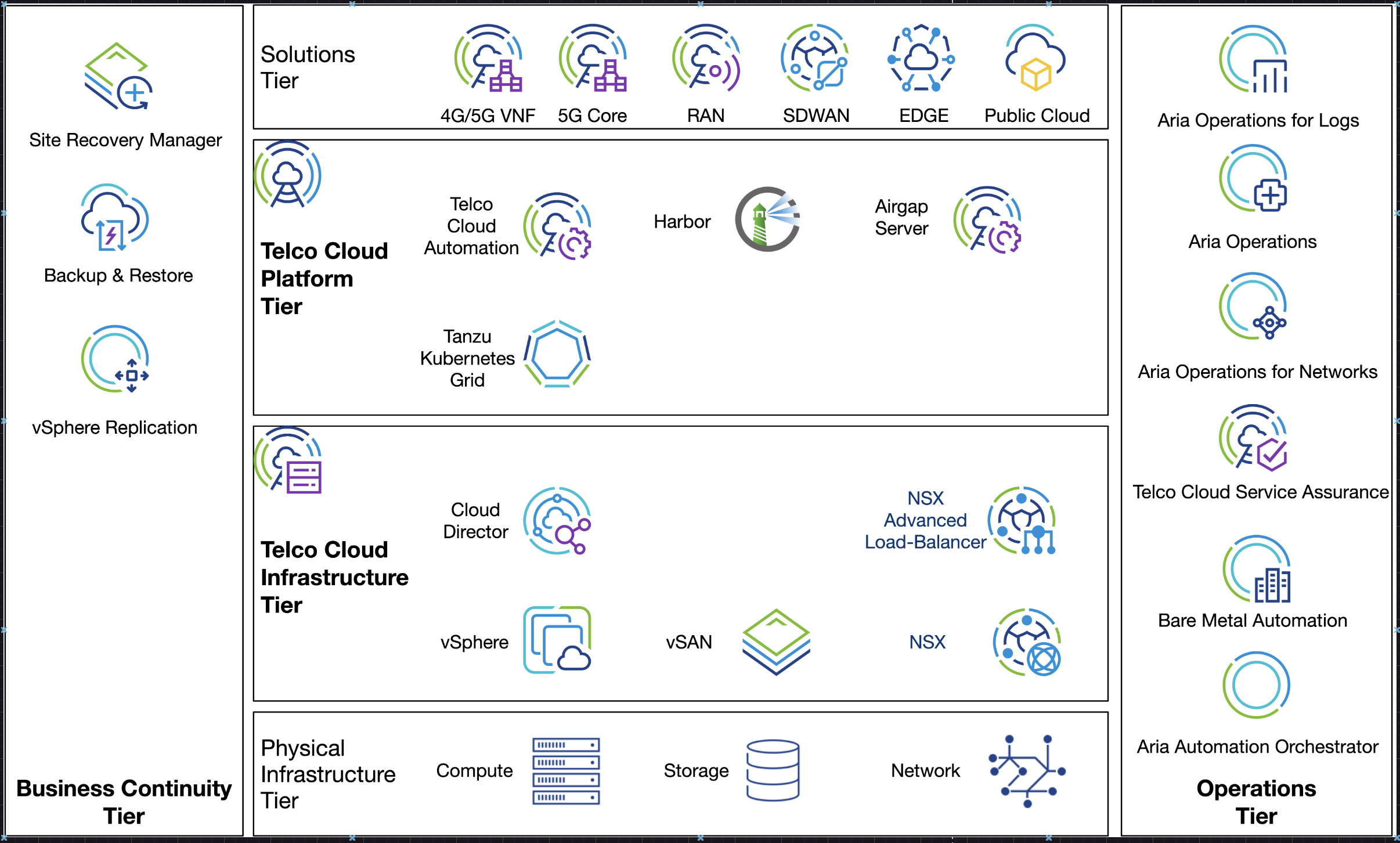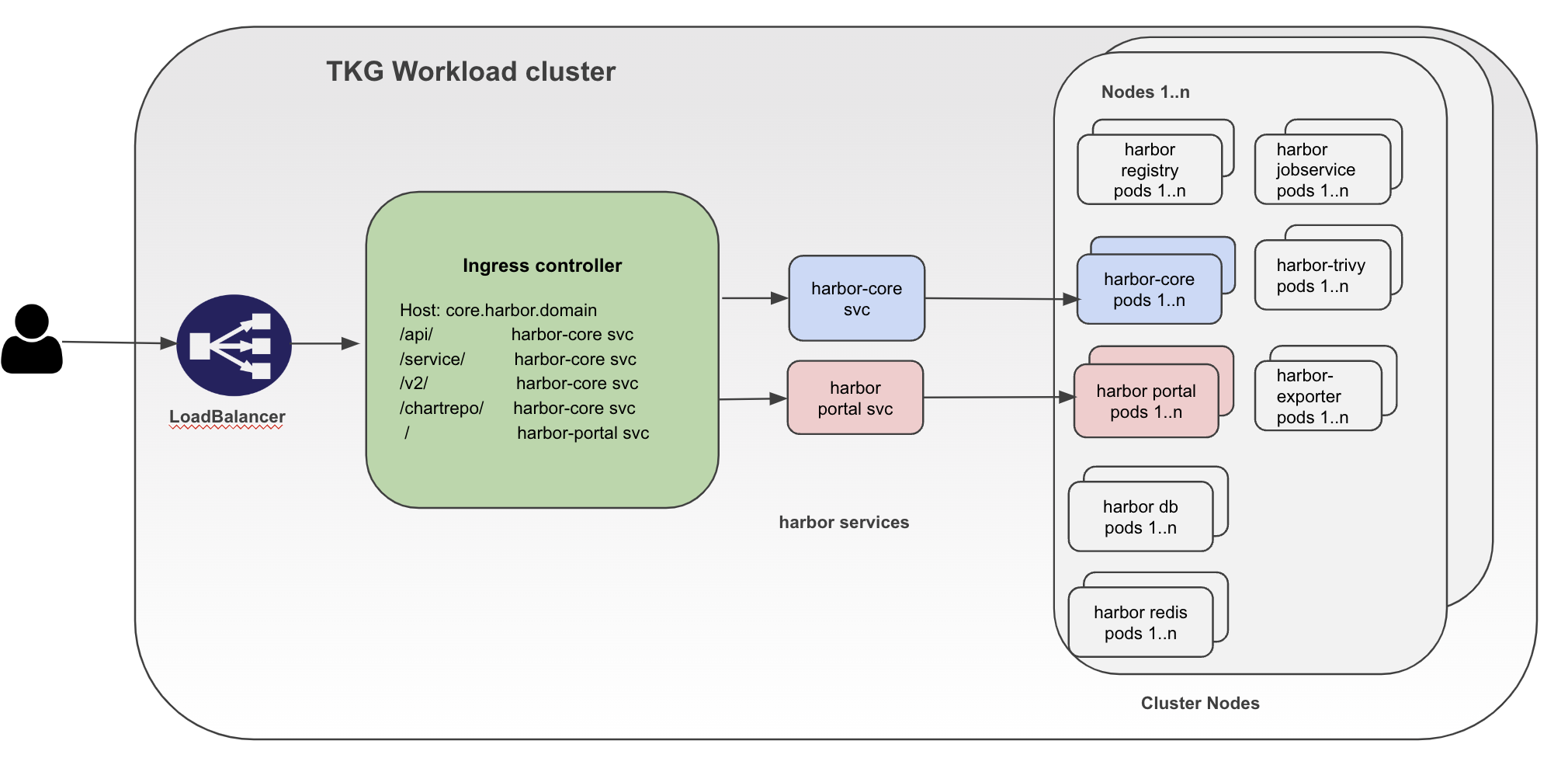Harbor is an open source registry that secures artifacts with policies and role-based access control, ensures images are scanned and free from vulnerabilities, and signs images as trusted. The Telco cloud platform (TCP) users use Harbor to store Helm charts and docker images required for CNF deployment.
Currently, Telco cloud platform (TCP) users deploy Goharbor offline installer on a custom VM using Docker Compose. Docker Compose lacks features like auto-scaling, high availability and advanced networking options that are essential for handling production workloads with high demand.
Telco cloud platform (TCP) offers Harbor CNF catalog from version 4.0.1 onwards which is based on open source goharbor project on top of Classy Standard cluster version v1.27.11.
It provides better performance with scale architecture (see Harbor Concurrency Limits).
TCA can be used to manage Harbor LCM operations such as:
Harbor installation using CNF instantiation flow.
Harbor Day-1 operations such as Harbor reconfiguration, Harbor version upgrade, Harbor cert rotation, Harbor Trivy Database update and so on.
Raising alarms when Harbor pods are down using TCA Alarm service.
CNF Inventory detailed view of Harbor pods on TCA UI.
Harbor observability, monitoring, and maintenance tasks using workload cluster Add-ons such as:
Backup and restore of Harbor pods using Velero addon.
Log collection of Harbor pods using Fluentbit add-on.
Provision of Persistent volume for Harbor pods using vSphere-csi add-on.
Telco Cloud Platform architecture

Harbor CNF architecture
Harbor CNF package consists of the following helm charts:
Harbor helm chart for deploying, reconfiguring and upgrading Harbor services.
Ingress controller helm chart for deploying NGINX reverse proxy for Harbor services.
Load balancer helm chart for Providing external IP address to Harbor service.
